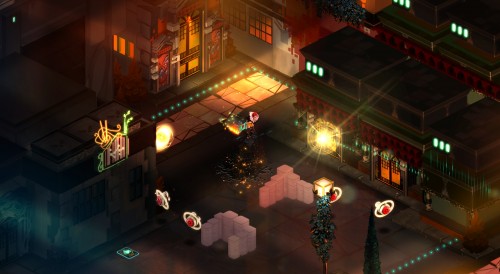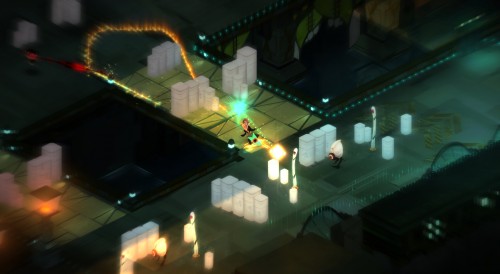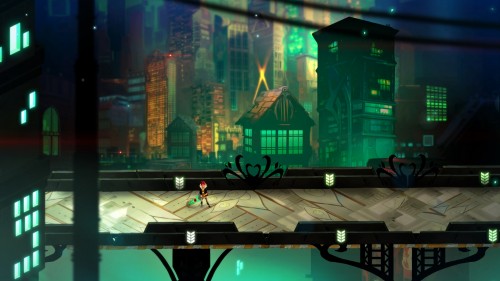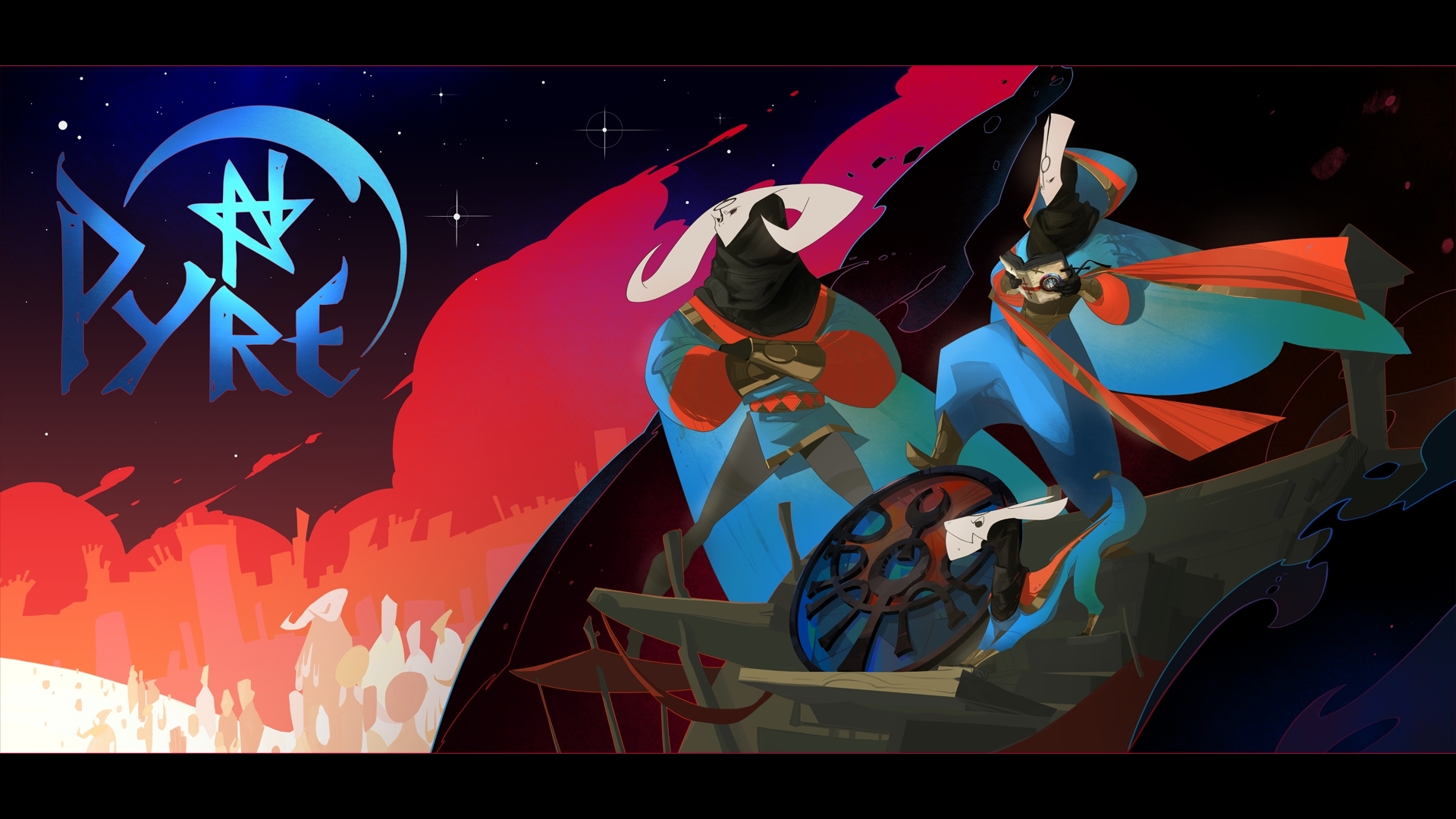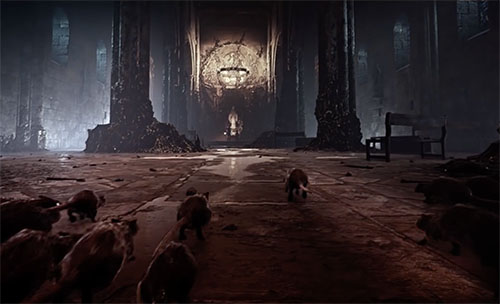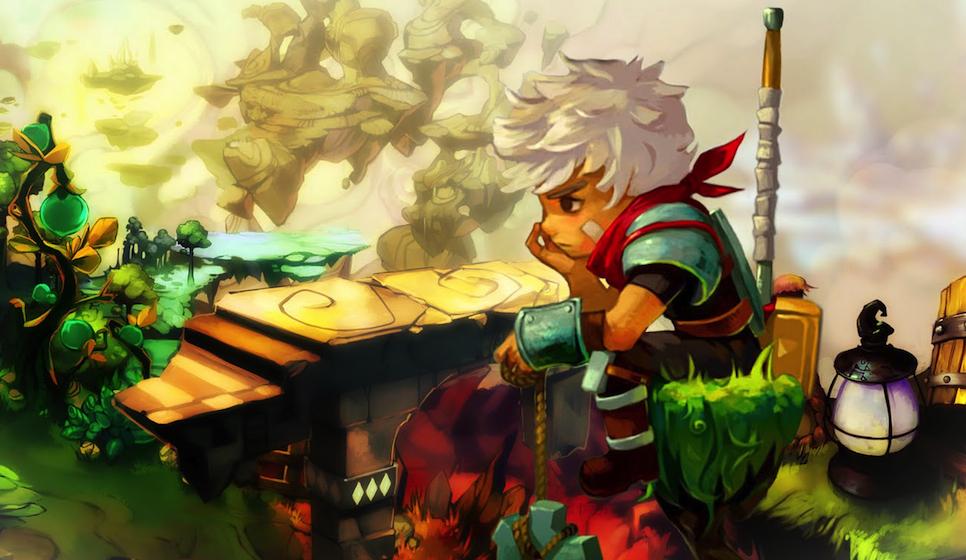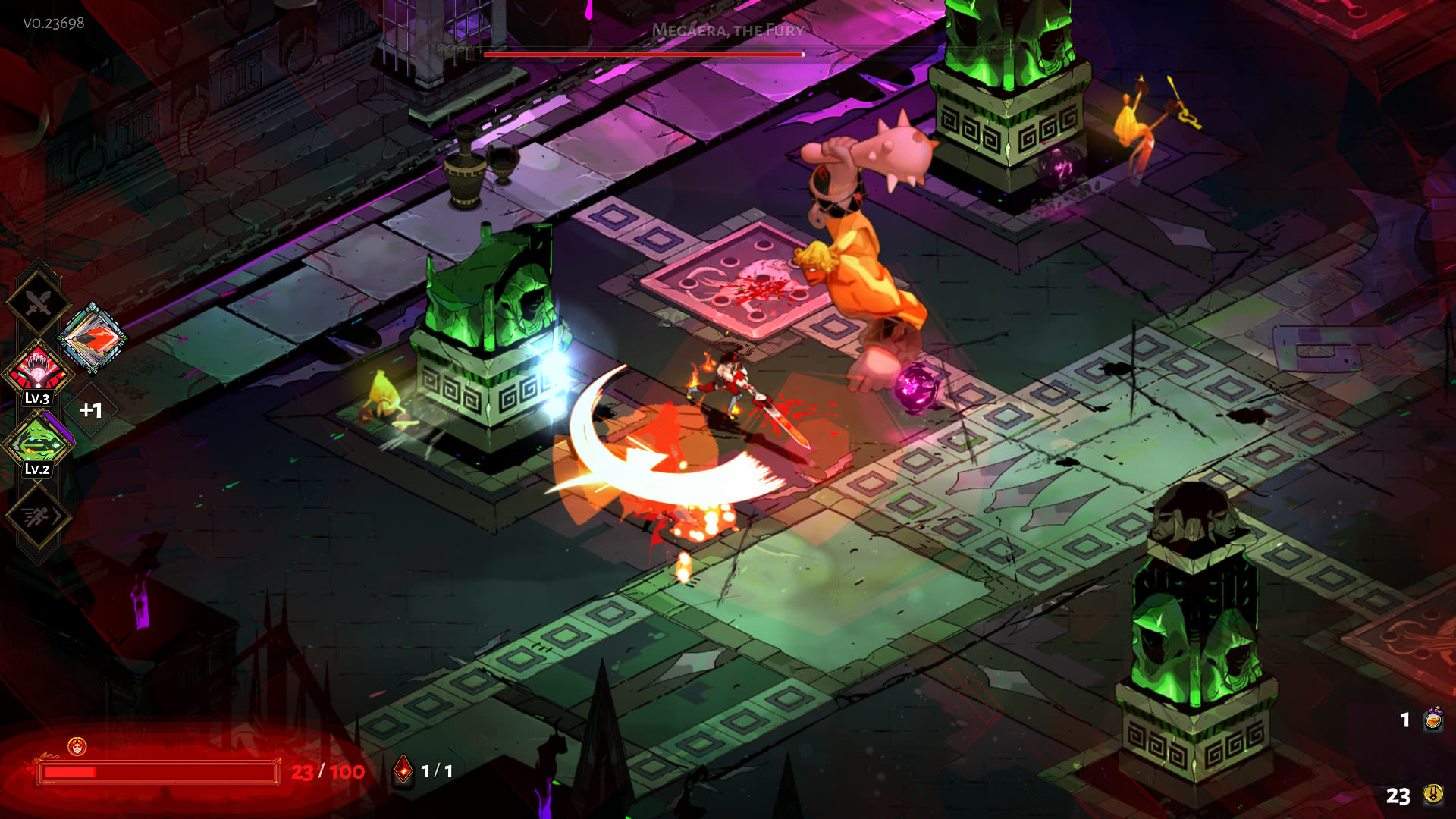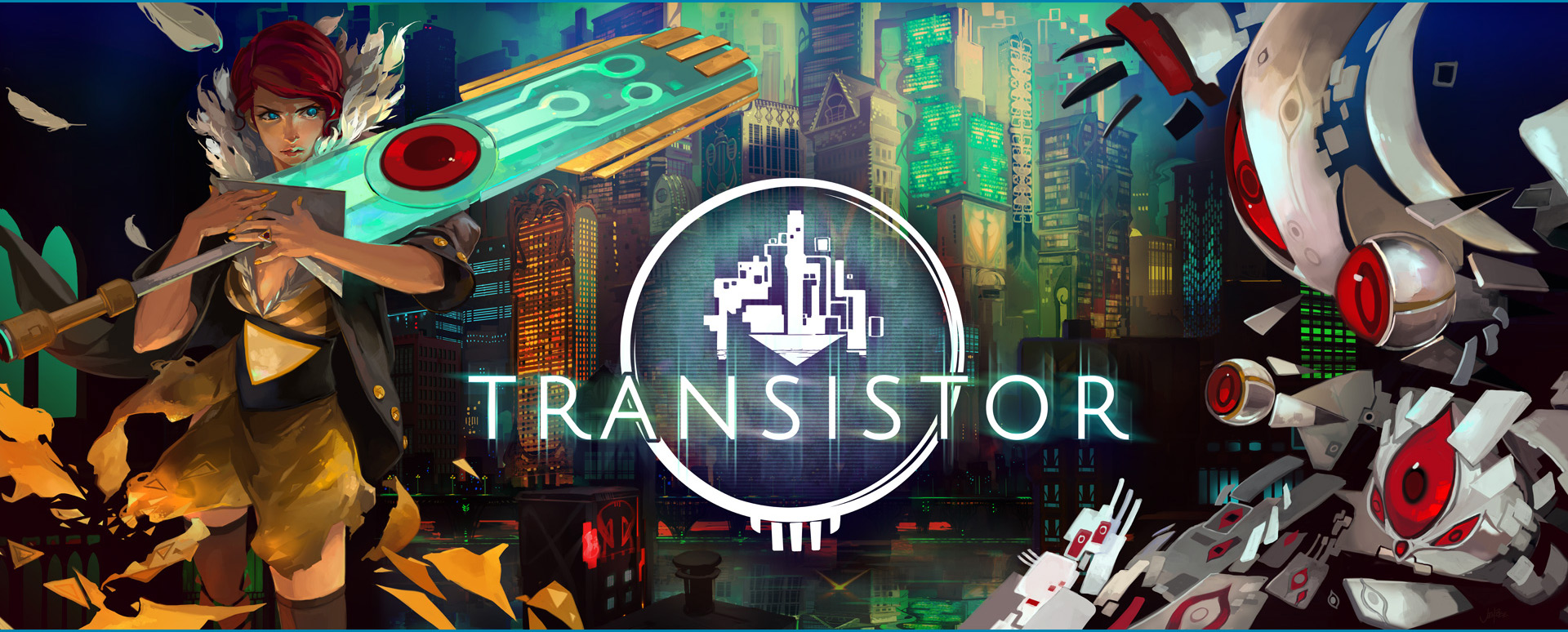
Transistor, the new game from Bastion creators Supergiant Games, reminds me a lot of Mamoru Oshii’s 2004 opus, Innocence. Like Innocence, it meditates on a world where technology has become so ingrained that it can literally define the physical world around us. It’s a world where communication is so fragile that, when it is cut off, as it is with the loss of main character Red’s voice, it leaves us no choice but to fight to reclaim our right to be heard.
And, like Innocence, it is a sequel to a previous work that now feels like a dry run. Bastion was a game set in a destroyed world, where the task was to rebuild. The game world literally constructed itself around you as you moved. In Transistor the world is being destroyed, taken apart by the mysterious Process, and your goal isn’t so much to stop it, but to understand why it’s even happening in the first place.
Your journey is helped along by the Transistor, a futuristic sword that looks like a cyberpunk reinterpretation of the Soul Edge. It’s inhabited by the spirit of a mysterious man who seems to know Red, but who’s relationship to her left as an open question. The one-sided conversation between the Transistor and the voiceless Red drives the game forward in a clever, unobtrusive manner that gives it a different feel from the omnipotent narrator of Bastion, with whom it shares a voice actor.
Transistor presents an art-deco world with a colourful yet carefully chosen palette. The use of painted, almost impressionist background art is wonderful, visually transmitting the isolation Red feels in the slowly destroyed world around her. The music is another fantastic effort from Darren Korb, a kind of cyberpunk jazz and blues combo that enhances the atmosphere of the game.
All this world building, atmosphere and storytelling would make the game stand out on their own, but fortunately there’s also a great game here as well. What at first seems to be another Diablo-style click-em-up soon turns out to be something far more original than that.
As Red progresses, she unlocks abilities that are essentially souls trapped within the Transistor itself. Abilities are fairly standard fare, however each one can be used in one of three different ways. An ability can be used as one of four primary attacks (or self-buffs, in some cases), in which case it functions as you’d expect. Each primary ability slot, however, has two upgrade slots attached to it, and any primary ability can be put in one of these slots to activate its secondary effect, which modifies the ability attached to the primary slot.
This essentially turns every ability into what Diablo III players will recognise as a rune— a modifier for a primary ability— but with a much greater range of options and combinations. There are also passive slots that, again, accept any of the unlocked abilities, giving them each a third function as a passive buff to Red. The flexibility this allows is astonishing, and provides an incredible opportunity for experimentation.
It isn’t all just freeform configuration, however. Abilities have a memory cost, and there’s only a limited amount of memory (16 at first) available. Configuring Red’s abilities to best slot into this limited space is an important part of getting the most out of Transistor. The game even forces choices by causing the four primary abilities to overload and become unusable for a time if Red’s health drops to zero. Losing a reliable combat ability may seem frustrating, but it also forces experimentation which may end up allowing an even better ability to take its place.
Combat itself offers two equally valid approaches. The first approach is the standard click-on-things-until-they-die approach. This works reasonably well for most smaller enemy groups and allows fights to end quickly. However Transistor also has what old-school PCRPG fans will recognise as a pause-based combat system. Pressing the space bar during combat brings up a tactical overlay that allows moves to be planned out. A meter across the top of the screen limits how abilities and movement can be used in each turn, and then the turn is executed rapidly. This allows for a more methodical approach to combat, especially against tougher enemies. Once executed, a short cooldown comes into effect before Red can use her abilities again.
This, again, shows off the game’s incredible depth when it comes to design. Each combat system has its own drawbacks. The normal system requires good timing, positioning and reflexes in exchange for unlimited ability usage, while the tactical system allows a more measured and potentially harder-hitting approach to combat while requiring you to wait a few precious seconds in between turns. The key to success in Transistor is knowing when best to use each mode. If Red’s health is to drop to zero as the result of an attack, then the tactical mode will automatically engage, forcing you to move out of the way of the attack, and respond, or else lose an ability.
If anything lets Transistor down, it’s that there simply isn’t enough of it. The entire game comes in at maybe four hours worth of total playtime. The intent is that the game should be played through multiple times, thanks to its excellent Recursion mode, which keeps Red’s level and unlocked abilities, but places much tougher enemies through the game. The story and design of the game is enough to keep most players coming back, but not everyone will be enthused by the idea of the same game, but harder as a longevity mechanic. Offering up randomised dungeons or other such genre staples would feel somewhat out-of-place here, however, as Transistor isn’t focused on the eternal loot hunt that most of its peers are.
What there is of Transistor, is nothing short of a masterpiece. The art, the music, the story and the combat all work together to bring to life this tale of the voiceless singer and her sword-bound companion. Supergiant showed with Bastion that they are artists of the highest calibre, and they’ve certainly topped that previous game here. Like Mamoru Oshii did in Innocence, they’ve created a sombre, moving meditation on the isolation of technological advancement and how enabling greater communication between people can ultimately render us, as individuals, mute.
Gorgeous art
Great story told really well
Deep combat and character advancement system
Amazing soundtrack
Not quite long enough

